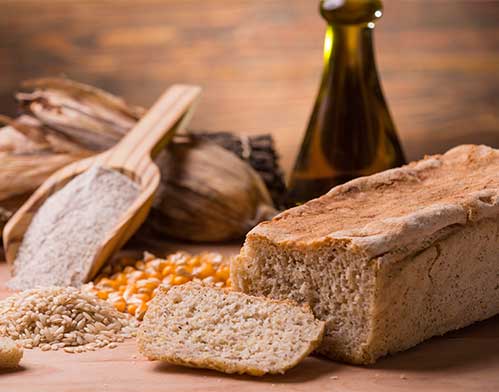One Simple, But Important Dietary Choice for Brain Health
- 6/12/16

[vc_column css=".vc_custom_1501599954939{padding-right: 0px !important;padding-left: 0px !important;}"][vc_column_text el_id="text-content"]By David Perlmutter, M.D.
What are the broad strokes recommendations in terms of dietary choices to help keep your brain healthy? The biggest source of confusion seems to center on dietary fat. Clearly, over the past 3 decades, we were warned that dietary fat was villainous and would increase our risk for mental decline. But that idea stands in contrast with scientific research.
Researchers at the Mayo Clinic, publishing in the Journal of Alzheimer’s Disease, reported the results of their study in which they explored the role of diet as it relates to dementia risk. They followed a group of over 2,000 elderly individuals for close to 4 years and carefully monitored their diets with respect to consumption of protein, fat and carbohydrate. The subjects also underwent mental evaluations every 15 months to determine if they were developing any issues related to dementia.
The results of the study were impressive by any measure. The risk of dementia in those at the higher end of the scale in terms of carbohydrate consumption increased by close to 90%. Those whose calories came more from fat were found to have a reduced risk of becoming demented by around 44%.
In the discussion section of the report, the authors call attention to other studies that relate these dietary parameters to brain health and function. They summarize research describing how reducing carbohydrate consumption is associated with reduced risk of mental decline. In addition, they point out results from the National Health and Nutrition Examination Survey revealing that a diet with a high percentage of fat is associated with better processing speed, learning and memory, while lower processing speed was associated with a diet that favored higher carbohydrate foods.
This information is important because beyond looking at risk for developing dementia, it relates diet to moment-to-moment brain function.
A diet that favors carbs and restricts fat increases inflammation, the cornerstone mechanism in brain degeneration. And this quite literally is like adding fuel to the fire.[vc_column width="1/4"][vc_single_image image="73" img_size="medium" alignment="center"][vc_column width="3/4"][vc_empty_space height="5px"][vc_column_text]
[vc_column css=".vc_custom_1501599965665{padding-right: 0px !important;padding-left: 0px !important;}"][vc_column_text]This information is intended for educational and informational purposes only. It should not be used in place of an individual consultation or examination or replace the advice of your health care professional and should not be relied upon to determine diagnosis or course of treatment.
What are the broad strokes recommendations in terms of dietary choices to help keep your brain healthy? The biggest source of confusion seems to center on dietary fat. Clearly, over the past 3 decades, we were warned that dietary fat was villainous and would increase our risk for mental decline. But that idea stands in contrast with scientific research.
Researchers at the Mayo Clinic, publishing in the Journal of Alzheimer’s Disease, reported the results of their study in which they explored the role of diet as it relates to dementia risk. They followed a group of over 2,000 elderly individuals for close to 4 years and carefully monitored their diets with respect to consumption of protein, fat and carbohydrate. The subjects also underwent mental evaluations every 15 months to determine if they were developing any issues related to dementia.
The results of the study were impressive by any measure. The risk of dementia in those at the higher end of the scale in terms of carbohydrate consumption increased by close to 90%. Those whose calories came more from fat were found to have a reduced risk of becoming demented by around 44%.
In the discussion section of the report, the authors call attention to other studies that relate these dietary parameters to brain health and function. They summarize research describing how reducing carbohydrate consumption is associated with reduced risk of mental decline. In addition, they point out results from the National Health and Nutrition Examination Survey revealing that a diet with a high percentage of fat is associated with better processing speed, learning and memory, while lower processing speed was associated with a diet that favored higher carbohydrate foods.
This information is important because beyond looking at risk for developing dementia, it relates diet to moment-to-moment brain function.
A diet that favors carbs and restricts fat increases inflammation, the cornerstone mechanism in brain degeneration. And this quite literally is like adding fuel to the fire.[vc_column width="1/4"][vc_single_image image="73" img_size="medium" alignment="center"][vc_column width="3/4"][vc_empty_space height="5px"][vc_column_text]
About Dr. Perlmutter: David Perlmutter, M.D., is an expert in the human microbiome, a board-certified neurologist, Fellow of the American College of Nutrition, America’s brain-health expert and #1 New York Times best-selling author.
[vc_column css=".vc_custom_1501599965665{padding-right: 0px !important;padding-left: 0px !important;}"][vc_column_text]This information is intended for educational and informational purposes only. It should not be used in place of an individual consultation or examination or replace the advice of your health care professional and should not be relied upon to determine diagnosis or course of treatment.






